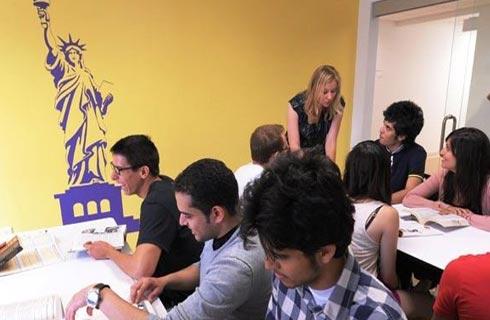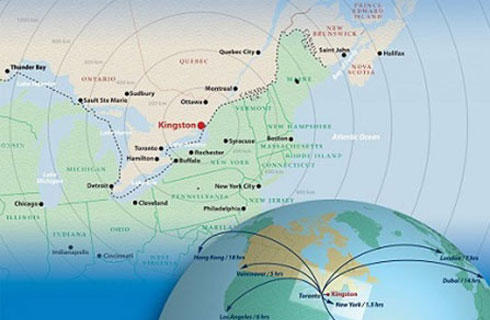银行与金融(MBA)
MBA Banking and Finance

学历文凭
Masters Degree (Taught)

专业院系
Bangor Business School

开学时间

课程时长

课程学费

国际学生入学条件
IDP—雅思考试联合主办方

雅思考试总分
6.0
- 雅思总分:6
- 托福网考总分:75
- 托福笔试总分:160
- 其他语言考试:PTE score of 56(51),Cambridge English test scores - Equivalent B2 First (formerly CEF) score required -168 .
CRICOS代码:
申请截止日期: 请与IDP联系 以获取详细信息。
课程简介
Study for an MBA Banking and Finance Master’s Degree at one of Europe’s foremost Banking and Finance Schools. The MBA Banking and Finance is designed for candidates with degrees or relevant business backgrounds, who wish to develop their expertise and further their professional careers.; A primary objective of the MBA Banking and Finance is to develop knowledgeable and capable executives to move quickly to key positions in the financial services sector. The programme will provide executive training at an advanced level covering the latest developments in the management of banks and financial services firms.; The main aim of our full-time MBA is to introduce a much stronger practical emphasis focussing on the strategies and financial management of financial firms. Your MBA will give you practical insight and skills in a range of strategic and management areas in financial services. We invite practitioners to share their views and experiences. Case studies and contemporary issues figure highly in the programme.; The School has a lively group of staff, who are always willing to share their knowledge and expertise. Your teaching staff at Bangor are active researchers, combining high levels of expertise with a desire to extend their subject area, and, most importantly from a postgraduate viewpoint, an enthusiasm to encourage others to develop their academic, financial and business skills.; Financial systems and financial services firms’ strategies are now involved in a fundamental, far reaching process of realignment and change. The strategic priority of banks and other financial institutions has shifted away from growth and size alone towards a greater emphasis on profitability, performance and shareholder value creation. The growing economic importance of financial sectors has also re-emphasised that bankers, fund managers, multinational companies, securities firms, regulators and financial advisers must have a clear understanding of the theory and practice relating to banking and finance.; The Bangor Business School aims to build on our long-established expertise in the area of postgraduate training in banking and finance by offering a one-year modular MBA Banking and Finance, which aims to develop participants’ academic and managerial skills in these areas. An important objective is to provide relevant analytical training to familiarise participants with the latest strategic, managerial and industrial developments in the financial services industry.; The MBA Banking and Finance course provides a coherent analytical framework for the study of banking and financial developments from a management perspective. The emphasis throughout the programme is on the application of contemporary, financial, managerial and strategic developments that affect real-world decision-making in the global financial industry.; We recognise that a thorough understanding of recent developments in banking and financial firm strategies, financial management, risk management, international financial markets, marketing strategies and performance evaluation are essential requirements for all those involved in financial sector activities.; The course will be of interest to the following people:; Taught modules are undertaken in the period of January to June and September to January and will involve the study of 120 credits. The dissertation (or equivalent) is valued at 60 credits and is undertaken during the period of June to September.; Taught modules are undertaken in the period of September to June and will involve the study of 120 credits. The dissertation (or equivalent) is valued at 60 credits and is undertaken during the period of June to September.
相关申请
 预科
预科 奖学金
奖学金 实习机会
实习机会 在校学习
在校学习 跨境学习
跨境学习 校园授课-线上开始
校园授课-线上开始 在线/远程学习
在线/远程学习
开学时间&学费
学费信息仅供参考,请与IDP联系以获取详细信息
| 开学时间 | 时长 | 学费 | 地点 |
|---|
学校排名

世界排名401
数据源:
泰晤士高等教育世界大学排名
关于班戈大学

班戈大学自 1884 年建校以来,一直致力于提供世界一流的教学和研究。班戈大学位于北威尔士,地理位置优越,适合希望体验充满活力的生活方式和令人兴奋的户外活动的学生。班戈大学有多种学科课程可供选择。该大学是北威尔士医学院的所在地,新设施有助于培训学生从事医疗行业的各种工作。该校还提供海洋科学等专业科学课程,并拥有自己的研究船--马多格王子号。班戈大学的学生在第一年(9 月入学)可享受住宿保障,并可选择加入 150 多个俱乐部和社团中,结识志趣相投的人,建立牢固的社会纽带,在学习之余享受乐趣。班戈大学卓越的课程设施和热情洋溢的教师团队有助于确保所有学生都能享受到量身定制的丰富学习课程。学生将受益于专业级的资源和学习空间,以及真正关心帮助培养下一代行业领袖的教学人员。斯诺多尼亚国家公园距离班戈大学近在咫尺,可以欣赏到壮丽的景色,可以散步,还可以尝试各种户外运动。在稍远的地方,学生可以乘坐火车方便地到达利物浦和曼彻斯特,以及北威尔士的其他旅游胜地,包括众多美丽的海滩,学生可以在课余时间去探索。
本校相关课程

威尔士历史博士/哲学硕士
学历文凭
Ph.D.
开学日期
课程费用总额


威尔士历史MA / PgDip
学历文凭
Masters Degree (Taught)
开学日期
课程费用总额


翻译研究博士/硕士
学历文凭
Ph.D.
开学日期
课程费用总额


实践翻译研究博士学位
学历文凭
Ph.D.
开学日期
课程费用总额


翻译研究(MA)
学历文凭
Masters Degree (Taught)
开学日期
课程费用总额


MSc Sustainable Tropical Forestry (SUTROFOR) (Erasmus Mundus course)
学历文凭
Masters Degree (Taught)
开学日期
课程费用总额

其他相关课程

Undergraduate Foundation Programme (UFP) - Business, Economics, Finance and Management
 ONCAMPUS伦敦南岸大学中心
ONCAMPUS伦敦南岸大学中心学历文凭
Foundation for Undergraduate
开学日期
课程费用总额


Graduate Certificate in Business (Financial Planning)
 昆士兰科技大学
昆士兰科技大学学历文凭
Graduate Certificate
开学日期
课程费用总额


商学学士学位和理学学士学位-金融和数学
 南昆士兰大学
南昆士兰大学学历文凭
Dual Degree
开学日期
课程费用总额


银行与金融理学硕士
 伦敦布鲁内尔大学
伦敦布鲁内尔大学学历文凭
Masters Degree (Taught)
开学日期
课程费用总额


财务管理硕士
 赫尔大学
赫尔大学学历文凭
Masters Degree (Taught)
开学日期
课程费用总额


MSc Islamic Finance
 邓迪大学
邓迪大学泰晤士高等教育世界大学排名:337
学历文凭
Masters Degree (Taught)
开学日期
课程费用总额










